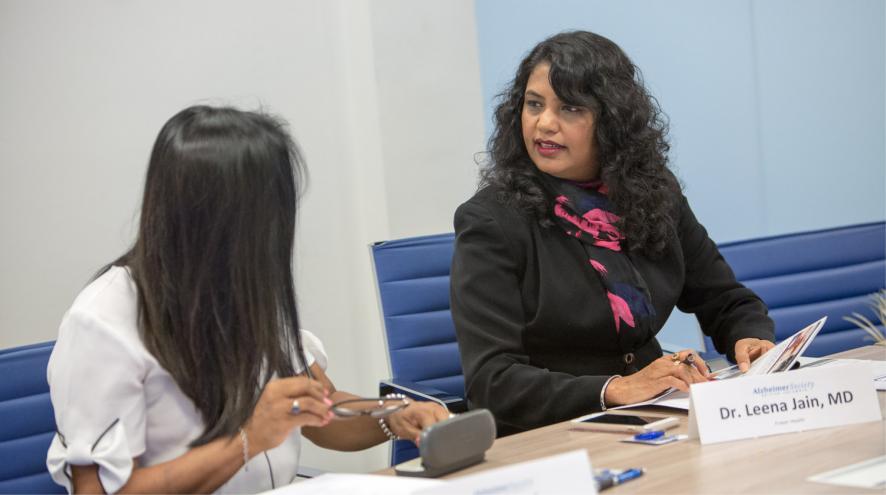"I live with dementia...in the South Asian community."
Canadians affected by dementia are going public for a third consecutive year in an effort to change hearts and minds. People living with the disease, their caregivers and family members are courageously stepping forward with their personal stories in the Alzheimer Society’s nation-wide campaign, I live with dementia. Let me help you understand as part of Alzheimer’s Awareness Month.

Bringing awareness and education about dementia within the South Asian community, and addressing associated stigma is particularly important to Dr. Leena Jain, a geriatric specialist with close to twenty years of experience. Because she’s seen firsthand the impact of her grandmother’s dementia on her family, she understands what the journey can look like and knows why it’s important for the people she cares for to be educated and connected to culturally-sensitive support services like those offered by the Alzheimer Society of B.C.
Dr. Jain's passion for educating about dementia was one of the reasons she and Fraser Health wanted to partner with the Alzheimer Society of B.C. to establish culture- and language-specific support for the South Asian community. "Ensuring availability of appropriate education and support services is extremely important in clearing misconceptions and removing stigma to support people getting an early diagnosis and timely management of dementia," Dr. Jain says.
“It starts with recognizing and acknowledging the symptoms of dementia as soon as you see them in yourself or someone close to you,” Dr. Jain says. She stresses that the next step is connecting with your primary care physician for an early diagnosis, as well as a potential referral to a geriatrician or other specialist if necessary. “There are many potentially reversible conditions that may present with memory problems that need to be ruled out and an early diagnosis is very important.”
If a diagnosis of dementia is established, support and education for both the person with the diagnosis and their caregivers is equally important in managing the challenges presented by the disease. “I tell them that while they already know they’re experiencing issues which are affecting their day-to-day lives, the diagnosis should not change how they or the people in their lives view them. I try to get across that it isn’t their fault,” Dr. Jain says. In addition to emphasizing the value of early diagnosis to improve outcomes, she focuses on lifestyle changes – diet, social engagement, as well as mental and physical activity – while connecting with support services.
Does she think attitudes toward dementia are changing? “Definitely! People are starting to come to me now, are less afraid to say they are experiencing problems with memory. They are starting to recognize that it isn’t a natural part of aging.
Want to learn more?
Read the stories of more B.C. individuals and families who are affected by dementia and help us change the conversation!
